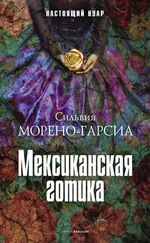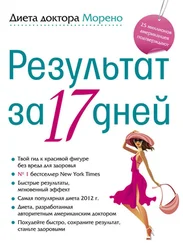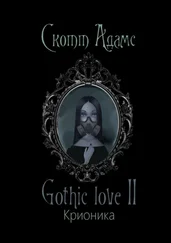“Why are all these from 1888?” she asked.
“The nearby mine was managed by Spaniards until Mexico’s independence and left alone for many decades because nobody believed much silver could be extracted. But my great uncle Howard thought differently,” Francis explained. “He brought modern English machines and a large English crew to do the work. He was successful, but a couple of years after reopening the mine there was an epidemic. It killed most of the English workers, and they were buried here.”
“And then? What did he do after? Did he send for more workers from England?”
“Ah…no, no need…he always had Mexican workers too, a large contingent of them…but they’re not all buried here. I believe they’re in El Triunfo. Uncle Howard would know better.”
A rather exclusive spot, then, though Noemí supposed it was for the best. The families of local crew members probably wanted to visit their loved ones, to leave flowers on their graves, which would have been impossible in this place, isolated from the town.
They walked onward until Noemí paused before a marble statue of a woman standing on a pedestal, flower wreaths in her hair. She flanked the doorway to a mausoleum with a pedimented doorway, her right hand pointing at its entrance. The name Doyle was carved in capital letters above this doorway along with a phrase in Latin: Et Verbum caro factum est .
“Who’s this?”
“The statue is supposed to be the likeness of my great aunt Agnes, who died during the epidemic. And here, the Doyles are all buried here: my great aunt, my grandfather and grandmother, my cousins,” he said, trailing off, dipping into an uncomfortable silence.
The silence, not only of the cemetery but of the whole house, unnerved Noemí. She was used to the rumble of the tram and the automobiles, the sound of canaries chirping in the inner courtyard by the gleeful fountain, the barking of the dogs and the melodies pouring from the radio as the cook hummed by the stove.
“It’s so quiet here,” she said and shook her head. “I don’t like it.”
“What do you like?” he asked, curious.
“Mesoamerican artifacts, zapote ice cream, Pedro Infante’s movies, music, dancing, and driving,” she said, counting a finger as she listed each item. She also liked to banter, but she was certain he could figure that out on his own.
“I’m afraid I can’t be much help with that. What kind of car do you drive?”
“The prettiest Buick you’ve ever seen. A convertible, of course.”
“Of course?”
“It’s more fun driving without the hood on. It makes your hair look movie-star perfect. Also, it gives you ideas, you think better,” she said, running a hand through her wavy hair jokingly. Noemí’s father said she cared too much about her looks and parties to take school seriously, as if a woman could not do two things at once.
“What kind of ideas?”
“Ideas for my thesis, when I get to it,” she said. “Ideas about what to do on the weekend, anything really. I do my best thinking when I’m in motion.”
Francis had been looking at her, but now he lowered his eyes. “You’re very different from your cousin,” he told her.
“Are you also going to tell me I lean toward a ‘darker’ type, both my hair and coloration?”
“No,” he said. “I didn’t mean physically.”
“Then?”
“I think you’re charming.” A panicked look contorted his face. “Not that your cousin lacks charm. You are charming in a special way,” he said quickly.
If you’d seen Catalina before , she thought. If he’d seen her in the city with a pretty velvet dress, going from one side of the room to the other, that gentle smile on her lips and her eyes full of stars. But here, in that musty room, with those eyes dimmed and whatever sickness had taken hold of her body…but then, perhaps it wasn’t that bad. Perhaps before the illness Catalina still smiled her sweet smile and took her husband by the hand, guiding him outside to count the stars.
“You say that because you haven’t met my mother,” Noemí replied lightly, not wishing to voice her thoughts on Catalina. “She is the most charming woman on Earth. In her presence I feel rather tacky and unremarkable.”
He nodded. “I know what that is like. Virgil is the family’s heir, the shining promise of the Doyles.”
“You envy him?” she asked.
Francis was very thin; his face was that of a plaster saint haunted by his impending martyrdom. The dark circles under his eyes, almost like bruises against that pale skin, made her suspect a hidden ailment. Virgil Doyle on the other hand had been carved from marble: he exuded strength where Francis irradiated weakness, and Virgil’s features—the eyebrows, the cheekbones, the full mouth—were bolder, entirely more attractive.
She could not judge Francis ill if he wished for that same vitality.
“I don’t envy him his ease with words or his looks or his position, I envy his ability to go places. The farthest I’ve ever been is El Triunfo. That’s it. He’s traveled a bit. Not for long, he’s always quick to return, but it’s a respite.”
There was no bitterness in Francis’s words, only a tired sort of resignation as he continued speaking. “When my father was still alive he’d take me to town and I’d stare at the train station. I’d try to sneak in to look at the sign with the departure times.”
Noemí adjusted her rebozo, trying to find warmth in its folds, but the cemetery was terribly damp and chilly; she could almost swear the temperature had dropped a couple of degrees the more they’d pressed into it. She shivered, and he noticed.
“I’m so stupid,” Francis said, removing his sweater. “Here, have this.”
“It’s fine. Really, I couldn’t let you freeze for my sake. Maybe if we start walking back I’ll be better.”
“Well, fine, but please, wear it. I swear I won’t be cold.”
She put on the sweater and wrapped the rebozo around her head. She thought he might pick up the pace since she was now walking in his sweater, but he didn’t rush back home. He was probably used to the mist, the shady chill of the trees.
“Yesterday you asked about the silver items in the house. You were right, they came from our mine,” he told her.
“It’s been closed for a long time, hasn’t it?”
Catalina had said something about that; it was why Noemí’s father had not been keen on the match. Virgil seemed to him a stranger, maybe a fortune hunter. Noemí suspected he’d let Catalina marry him because he felt guilty about driving away her previous suitor: Catalina had loved him truly.
“It happened during the Revolution. That’s when a host of things happened, one thing led to another and operations ceased. The year Virgil was born, 1915, that was the absolute end of it. The mines were flooded.”
“Then he is thirty-five,” she said. “And you are much younger.”
“Ten years younger,” Francis said with a nod. “A bit of an age gap, but he was the one friend I had growing up.”
“But you must have gone to school eventually.”
“We were schooled at High Place.”
Noemí tried to think of the house filled with the noise of children’s laughter, children playing hide and seek, children with a spinning top or a ball between their hands. But she couldn’t. The house would have not allowed such a thing. The house would have demanded they spring from it fully grown.
“Can I ask you a question?” she said, when they were rounding the coach house and High Place was visible, the curtain of mist having parted. “Why the insistence on silence at the dining table?”
“My great uncle Howard, he’s very old, very delicate, and very sensitive to noises. And the sound travels easily in the house.”
Читать дальше
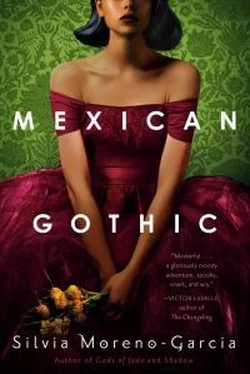

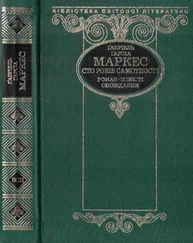


![Сильвия Морено-Гарсия - Боги нефрита и тени [litres]](/books/431579/silviya-moreno-garsiya-bogi-nefrita-i-teni-litres-thumb.webp)
![Сильвия Морено-Гарсия - Мексиканская готика [litres]](/books/431998/silviya-moreno-garsiya-meksikanskaya-gotika-litres-thumb.webp)


